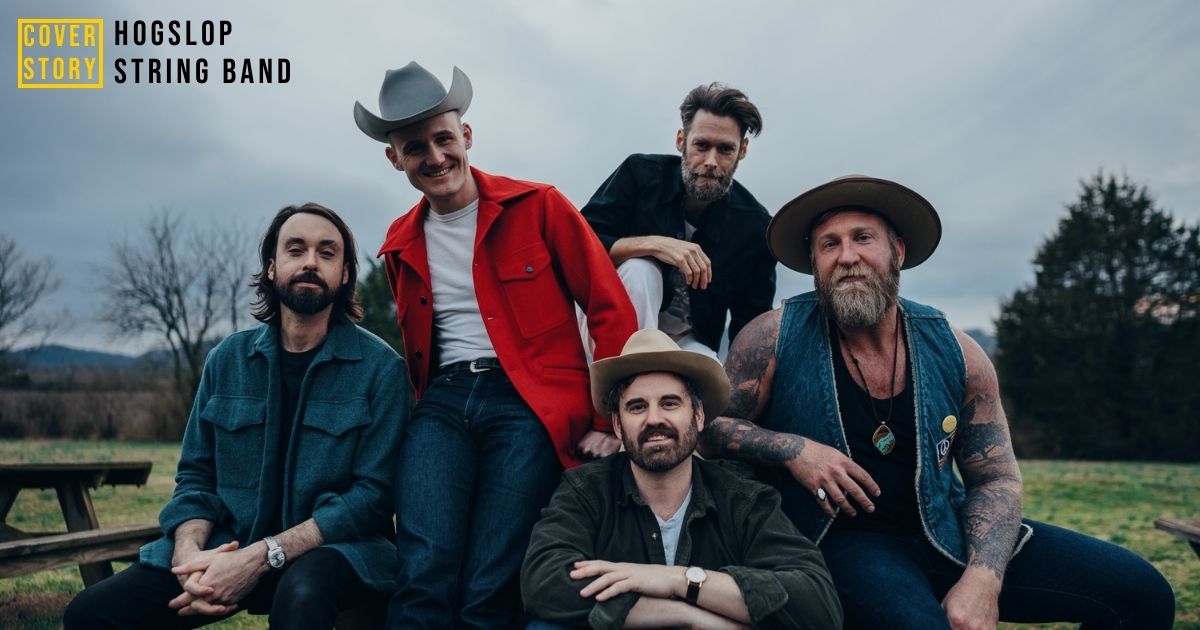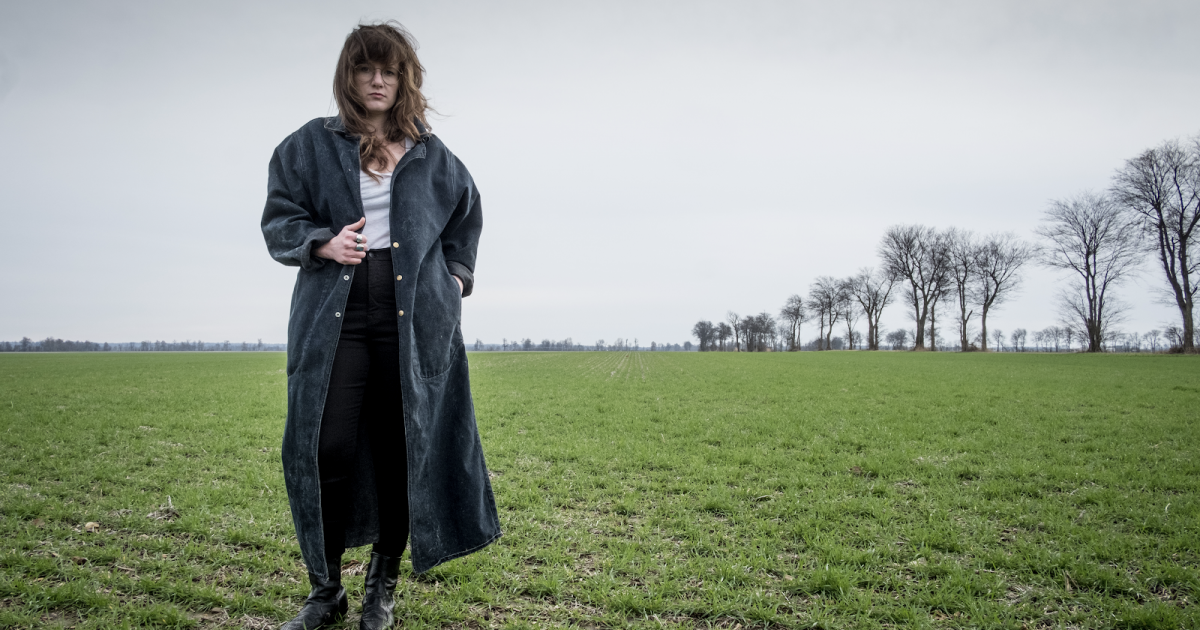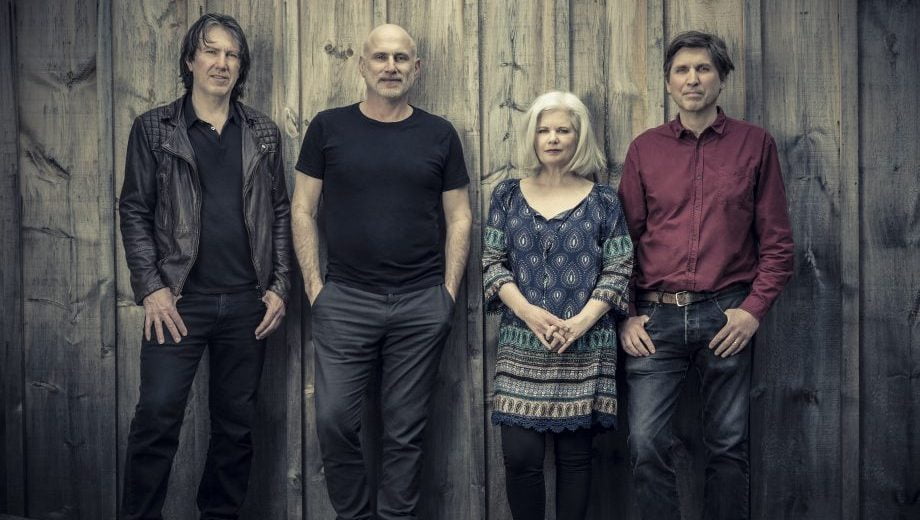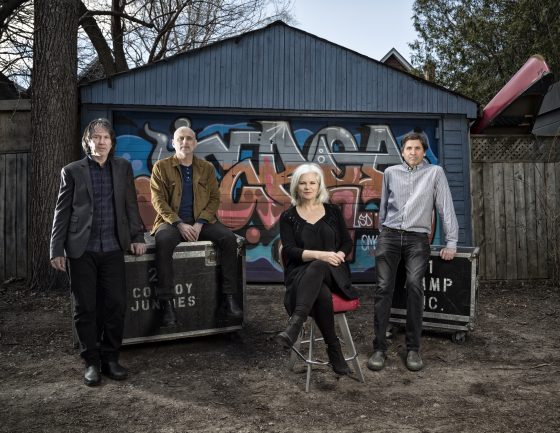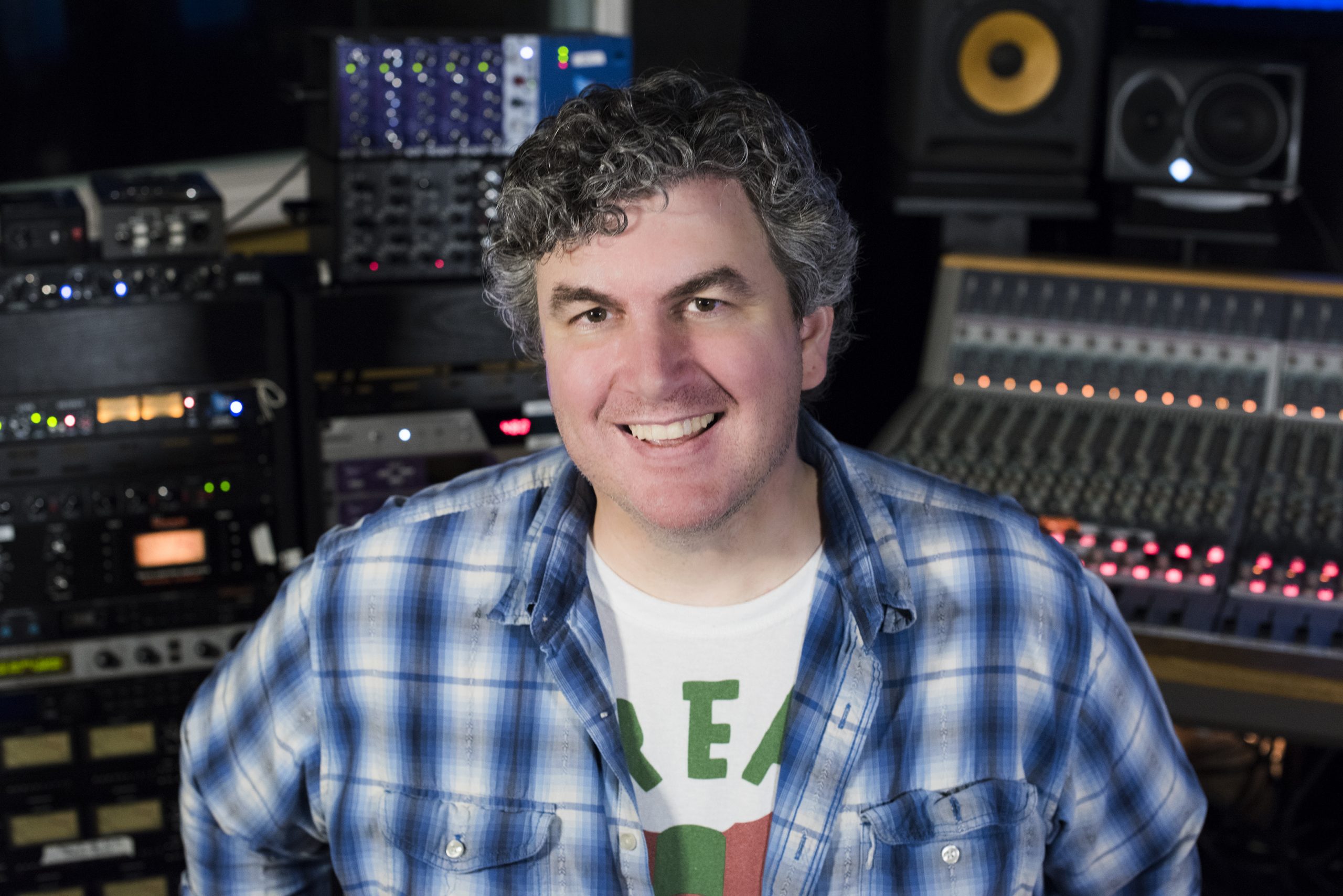Wes Sharon was 11 when he bought his first punk record. He was just like any kid growing up in Oklahoma in the ‘70s, except he was fascinated by this music where adults acted like kids. “I went to this place called Peaches Records & Tapes. I remember this very well: The girl behind the counter had a perm. I asked her where the punk records were and, as bitchy as she could say it, she said, 'What’s punk?'”
The kid struggled to answer the question, but all he could come up with was, “Like, the Police?”
Fortunately, the clerk took pity on him and sent him out the door with the Clash’s London Calling under his arm. “I went home, read the lyrics, saw the F word.” To say it changed his life would be an understatement. “The Clash did everything. They did all kinds of music, and they made a lot of mistakes, too. That really informed my listening.”
The kid took that lesson to heart. As a teenager, he learned to play bass and joined as many punk bands as he could. Soon, he started recording other punk bands — obscure groups that pressed only 500 seven-inch singles or a handful of CDs. He took a job at Prairie Sun Recording Studio, just north of San Francisco. “I thought Tom Waits owned it,” Sharon says with a laugh. “But he didn’t.”
And, eventually, he moved back to Oklahoma, settled down, got married, and opened his own studio in Norman. True to his Clash fandom, he doesn’t just record punk; in fact, his name has been connected with a recent resurgence of Sooner singer/songwriters who marry country twang and folk sophistication. In addition to Parker Millsap’s 2014 self-titled debut, Sharon helmed both of John Fullbright’s albums: 2012’s Grammy-nominated From the Ground Up and his 2014 follow-up, Songs.
What these and Sharon’s other projects (including the Grahams, Pat Travers, and the Turnpike Troubadours) have in common is a sense of intensity, an emphasis on performances that can be almost punk in their volatility. Sometimes they are wild and raucous, as with Millsap; but other times, they can be restrained and quiet, as with Fullbright’s Songs. Taking the Clash’s example, Sharon draws from a wide range of styles and settings and techniques, giving the sense that anything is possible at 115 Recording.
Tell me about 115 Recording. What’s your studio like?
The space has been here forever — well, something like 40 years. It’s built inside a warehouse, sort of a box within a box. Different people have had different studios here. I rebuilt it for a guy about 10 years ago, and he ended up wanting to get out of the business, so I bought it from him in 2008. It has a bit of a punk rock vibe.
How do you mean? Graffiti on the walls? Toilets ripped out like CBGB?
Only that it reminds me of the places I worked when I did punk records. It’s quite a bit nicer than any of those records, actually. It’s set up a bit like Studio B at Prairie Sun, where I used to work in California. It’s a rock 'n' roll studio, and it had a Trident console in it. That was a real punk rock desk. A lot of recordings were made with that series in the ‘80s. Now I think they’ve got Pete Townshend’s old Neve in there. I have a desk that reminds me of that Trident. It’s a good room. I don’t think Beyoncé or somebody like that would be very comfortable, but the bands I work with think it’s great. It’s got everything I need and not a whole lot of what I don’t … other than pianos. For a guy who doesn’t play piano, I seem to own a lot of pianos and keyboards. It’s a good workspace. People come here to work. There’s not a whole lot to do besides that.
Does that tend to keep people focused on the work? There’s always trouble to get into in New York or Los Angeles.
That’s a good point. Sometimes I wish maybe a bar was closer, so that people would have a place to go. It’s not like we’re out in the sticks. We’re actually close to a lot of stuff. There are restaurants within walking distance, so you can check out for 15 minutes. But there’s not a huge amount of distractions. We’re not next to a strip club or anything.
When you left California, what brought you back to Norman?
When I first came back, it was because I had broken up with a girlfriend. That was it. I just needed to get out of town. I came home and was around the people I needed to be around to get through that. And then I started recording. I’d just finished a session that paid quite a bit, so I had some money. I moved in with one of my best friends, April Tippens, who was in a band called Radial Spangle. They had a record deal with Beggars Banquet. We made some recordings there and that got me started on the idea of working out of a house. I did that for a while and just ended up staying. Oklahoma in the ‘90s was pretty cheap. It was cheaper for me to live and work in Oklahoma and fly back to sessions in California than it was for me to live and work out there.
Eventually, I found a place in a warehouse — another box inside a box — and I worked there for a while. We christened it the Devil’s Workshop. That was all about my grandma. We weren’t Satanists or anything. She was always asking me, "What do you do again? You listen to music all day?" She used to say idle hands were the devil’s workshop, and my friends and I thought that was funny. We printed these shirts that said, "If it sounds like hell, it was recorded at the Devil’s Workshop." It became a popular place for people to work. That was in Oklahoma City, but then I ended up getting married and my wife started working for the University of Oklahoma. She’s got a real job. So we moved to Norman. Go Sooners.
Has there ever been a temptation to move to a bigger city, like Nashville or Los Angeles?
I did John Fullbright’s record in 2012, and it was nominated for a Grammy, so the two of us went out there for the ceremony. And I ran into Don Was. I’d never met him before, but he’s the kind of guy who’s always the coolest person in the room all the time. He knew about John’s record and his first question for me was, "Did you do that record in Nashville?" I said, "No, I did it in Norman." He says, "What’s in Norman?" "Well, I am." And he says, "Right on!" I thought that was the greatest answer.
People ask me this all the time. It’s tempting. But if you go to Austin or Nashville or some place like that, you’re just another dude who does the exact same job. There would be a million of me. There’s a different attitude here. You’re not going to have business meetings out here. It’s going to be pretty laidback. When people come here, they come to work. And when they want to go somewhere else, they take me along.
I’ve made small records for a really long time. I did bigger stuff at Prairie Sun and worked with a lot of great people. I got to learn a lot. And, honestly, I missed that. I missed working within the culture of a community. At the end of your session, you walk out the studio door and there’s another guy walking out of another studio door: "How did your day go?" "Well, I did this and I did that." You know exactly what they mean. I miss that. In smaller markets — I hate to use that term — there aren’t a whole bunch of studios, so people in the business don’t tend to communicate. I’ve tried really hard to change that.
How so?
I’m actually a partner in another room here in Norman. I don’t work out of that room, but I helped the guy get started. He had worked in Nashville and Austin and had come home. His focus is completely different from mine, and it was good to help him. If I’m going to talk about community, I have to put my money where my mouth is. And when we want to geek out over something, we have each other. There are actually some guys here in town that I really admire. Norman, of all places, has quite a few recoding facilities. Trent Bell has a place here. He used to play in the Chainsaw Kittens. We’ve been friends since we were 18.
So there is a small community there.
There’s a lot of good stuff going on here. Tulsa is the same way. There are all these little pockets of music scenes around the state. That’s the thing I like about Oklahoma. It’s not like the rest of the country. It’s not Texas, and it’s definitely not L.A. or Nashville. Nothing against any of those places. I have friends who work and live in all those cities. But Oklahoma’s its own little thing. It’s my belief that the Flaming Lips could have come from no other place than Oklahoma. It used to be more obvious that this place was different. Our filter was different. In other places it seemed that everybody was influencing everybody else. Out here there was nobody to influence you at all. By the time it got to us, it was a little different. It had changed somehow.
I could pontificate and act like I know what I’m talking about, but there does seem to be a rhythm that’s very specific to this place. There’s something about the music that just feels right, and there’s a more direct lineage to things. If I’m working with Fullbright, I can hear the music of generations before him. He’s not doing an impersonation. It’s just a feel. But there are other artists and what they’re doing is an exact replica of something else.
So they’re not pushing anything forward?
This is only my experience, but I do remember when I was a kid, I had a very specific outlook on music. I really liked punk rock, and what I mean by that is, I could appreciate the Sex Pistols, but I really loved Big Black. It seemed like everybody in that scene was being themselves, and then it reached a point where suddenly everybody was wearing a uniform. I was probably late to the party figuring that out. I liked the Rolling Stones and Led Zeppelin, and it was really uncool in that world to like those things. That’s what I mean by people doing an impersonation. They just like that one thing and that’s all they want to do.
Are you surprised to see some of the Oklahoma singer/songwriters get so much national attention?
It’s a little weird. But I can tell you this: At any point when I was working with John or Parker or the Turnpike Troubadours, I knew something was going on when we were making those records. It was unbelievable. I remember distinctly working on Fullbright’s first record and thinking, "Oh man, people have no idea what’s on the way. Either I am crazy or this is one of the best things I’ve ever heard." You don’t always feel that way. You might get that feeling about one song now and then, but it’s weird when you’re sitting on 10 or 12 songs that you think are going to be a huge deal. That record got a lot of attention. And then it happened again and then it happened again. What the hell?
All of those guys, they’re great songwriters. Evan Felker, John Fullbright, Parker Millsap, Jared Deck. They all have something. And there’s a whole stream of great songwriters coming up behind them. The thing about Norman and Tulsa is, there’s usually a club or two that becomes the hub for all these people to spin out of. It’s like Spin Art. So, by the time I get these guys in my room, they know where they’re headed. The thing that was so unusual was how young they all were. When I was that age, I didn’t have anything to say. My attitude was a bit more hedonistic. I just needed songs to play in front of people. But these guys have something to say. That’s so refreshing.
If they’re coming to you with an idea of where they’re going, how does that affect your role as a producer?
I happen to be friends with some of these guys now, but when they’re working with me, I’m just trying to be a good listener. They don’t need my friendship. They need a critical assessment of what they’re doing. I’m their audience. I have to be a good listener. I play bass, and I think bass players are really good listeners. They have to focus on the rhythm section in a way that other people might not. So we’ll work on the stuff that needs working on, but on a good day, I’m just here to capture the music. Some days you want to archive it, like field recording: This is what happened at that moment, and we didn’t touch a thing. But you always want it to be the best example of that song that it can be, and sometimes you want those songs to sound like it’s the first time they’ve ever been played and sometimes you want them to sound like the band has been playing them for years.
Ultimately, you’re just trying to get it to where somebody will want to hear it more than once. The way things are now, these guys are going to make their living playing shows, which means a record should hold up for two years. They need something that they can work for a couple of years, until they’re ready for another one. It should bear repeated listening, and you’re just trying to get the song to that place. I try to be a fan, and I think I’m better at that than anything else. I try to be a good listener and a good sounding board. Your mom and your girlfriend are going to love everything you do. Probably. Unless they’re out to get you. But I need to be able to tell someone his song isn’t good or this other demo they don’t like is the best thing they’ve done.
How did you get into roots and Americana after what sounds like a long career in punk?
The way I got into this crowd was, I started playing with Ryan Engelman, the guitar player for the Troubadours, and I would always make the same joke: The most punk rock thing I could do now is play country music. We were doing honkytonk stuff and playing it loud and fast. But if you look at punk — and I’m not talking about the more contemporary versions of it, but the stuff that was happening when I was younger — it was a form of folk art. The '80s were a good time for music because people had a lot to be angry about. And I was young enough to observe it and eventually be a part of it.
Folk art of any variety is trying to connect immediately with an observer. That’s the part of what I do now that reminds me of what I was doing when I was young. It’s this real immediate thing. It’s not overly polished. What I would consider the most punk rock thing about the guys I work with is that they’re about as close as you can get to an honest subject. Everything on Jared Deck’s record really happened. I know that because I know him; but I think it comes off that way, even if you don’t know him. Fullbright’s the same way. And Evan Felker. They may cover it up one way or another, but I guarantee you that they know about that topic and they’re telling you the truth.
Dig producers? Check out this conversation with Joe Henry.
Photo credit: Youngsun Yun
